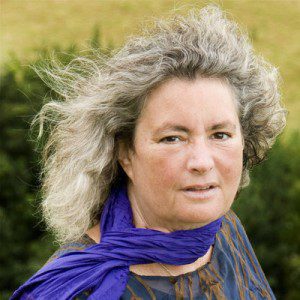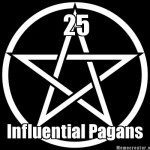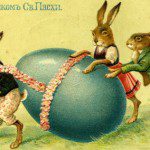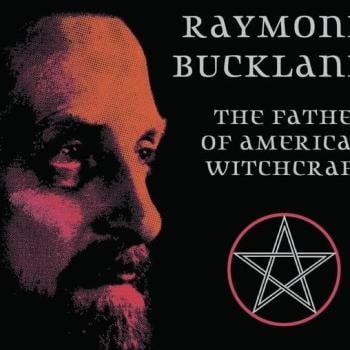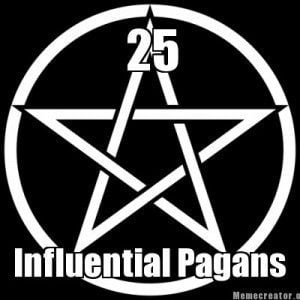 The response to this series has far exceeded my expectations, which is of course both flattering and terrifying. If you are just coming aboard you are at the end of a 3-part series highlighting the people I think have been most important to Modern Paganism over the last 200 years. Part one looked at ten European pioneers, while part two focused on their eleven American cousins. Interspersed with those two lists were some smaller lists featuring people who just missed the cut or might make the cut fifteen years from now.
The response to this series has far exceeded my expectations, which is of course both flattering and terrifying. If you are just coming aboard you are at the end of a 3-part series highlighting the people I think have been most important to Modern Paganism over the last 200 years. Part one looked at ten European pioneers, while part two focused on their eleven American cousins. Interspersed with those two lists were some smaller lists featuring people who just missed the cut or might make the cut fifteen years from now.
I’ve had a few people question my methodology so I thought I would explain how I made my selections. The most important question posed to myself while putting together this list was “Out of the 75 or so candidates, which of them affect how Pagans think and practice on a day to day and moment to moment basis?” That’s why someone like Philip Heselton isn’t on this list and Helena Blavatsky is. Most of us aren’t wondering if Gerald Gardner was initiated back in 1939 on a day to day basis, but we are probably contemplating the ideas of karma or reincarnation.
A lot of the list is also about what people have read, or will read in the future. Personally I adore Patricia Crowther, but the simple fact remains that more people have read Janet and Stewart Farrar. Their reach on Pagandom is bigger as a result of that. Including Wren Walker and Jason Pitzl-Waters is a reflection of that criteria, the traffic at their websites indicates that they have a lot of readers.
I also firmly believe that Modern Paganism is a direct descendant of the Western Magickal Tradition. The English branches of both Druidry and Witchcraft are tied directly and indirectly to institutions such as Freemasonry and the Golden Dawn. Many Pagans have moved away from the practice of Ceremonial Magick, but it’s still there anytime someone casts a circle or calls the Quarters.
I certainly don’t expect everyone to agree with my choices, but I like to think I made a valiant case for each. I think four of my top five are all very obvious choices, I expect a lot of disagreement about numbers three and four. Thanks for reading all three parts, all the comments, and sharing them all on social media.
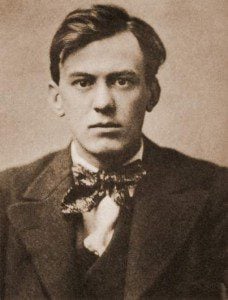 No 5. Aleister Crowley (1875-1947)
No 5. Aleister Crowley (1875-1947)
Why he’s on this list: The hoofprints of the Great Beast are all over Modern Paganism. From the way Crowley refined the magickal rituals of the Golden Dawn to his poetry and language, Uncle Al has had a huge impact on what most of us do on a day to day basis. Much of Crowley’s language and poetry was “borrowed” by both Gerald Gardner and Doreen Valiente when assembling much of the liturgy that would come to define British Traditional Witchcraft. While there’s a lot of doubt about just how religious and spiritual Crowley was, poems like Hymn to Pan capture the Horned God at his randiest, and Crowley’s work also call out to female deity, most notably “Sweet Nuit” in The Book of the Law.
Many of Crowley’s idea were inserted nearly whole scale into early Witchcraft, most certainly “an it harm none, do what you will” is a re-imagining of “do what thou wilt shall be the whole of the law.” Crowley’s re-writing of OTO Ritual was almost certainly influenced many English Witches. His practice of sex magick may have led to practices such as The Great Rite.
Why Crowley is not ranked higher: I think there is a case for Crowley at number one, and certainly in the top three, but I’m going to argue against it. Time has not been as kind to Crowley as it has to the others on this list. Books like Magick in Theory and Practice have a rather limited appeal, and while we often use fragments of Crowley’s words and writings in ritual, the context is often different. I’d probably make the argument that Crowley gave much of Modern Paganism its structure and spine along with certain ambiance, but he didn’t become our heart or soul.
No. 4 Doreen Valiente (1922-1999)
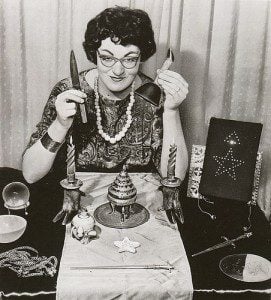 Why she’s on this list: To put it simply Valiente is the most important liturgist in the history of Modern Pagandom. Sure not everyone recites her Charge of the Goddess but it’s familiar to just about everyone. Valiente took some of the rather rudimentary rituals of early Witchcraft and turned them into poetry. Her influence on how we speak the language of Paganism will still be felt in a hundred years, and that’s an amazing achievement.
Why she’s on this list: To put it simply Valiente is the most important liturgist in the history of Modern Pagandom. Sure not everyone recites her Charge of the Goddess but it’s familiar to just about everyone. Valiente took some of the rather rudimentary rituals of early Witchcraft and turned them into poetry. Her influence on how we speak the language of Paganism will still be felt in a hundred years, and that’s an amazing achievement.
Valiente is not on this list just because of her early work with Gerald Gardner, she’s here because she’s one of the unifying threads of Modern Paganism. She researched the beginnings of Modern Witchcraft with Stewart and Janet Farrar, and worked with Robert Cochrane. She was one of our first historians, when it comes to Pagan History Books Valiente’s The Rebirth of Witchcraft is an essential text (and a book I treasure and have re-read at least a dozen times). She was also a leading light in the attempt to build Pagan Community in Great Britain. When Valiente is called “The Mother of Modern Witchcraft” it’s not an exaggeration.
Why she’s not ranked higher: I don’t have a good answer for that, if anything Valiente is the soul of Modern Paganism; she’s what many of us aspire to. I have no doubt that Valiente would have been fully capable of creating her own Witchcraft Tradition had she chosen to do so, but she seemed to mainly refine and polish the Paganisms she encountered. I don’t mean that as an insult, because it takes real genius to make what was already good into something truly great.
Why she’s on this list: The first draft of this list had Starhawk listed at number five, but upon further consideration I decided that the ranking was just too low. I know it probably makes more sense to put Valiente in the number three spot, but hear me out. The influence of Starhawk (and people like her) is what changed British Witchcraft into Paganism. Starhawk wasn’t the first person to fuse political action, feminism, and Witchcraft, but she did it better (and more articulately) than anyone else. Starhawk brought new ideas and passions into Paganism and made them feel as if they had always been there.
Over thirty years after its initial publication The Spiral Dance (1979) remains a vital “how to” book. Sure Raymond Buckland might have done it first, but The Tree feels incomplete when compared to Dance. Starhawk also introduced concepts from Victor and Cora Anderson’s Feri Tradition to the wider world, she bridged the worlds between American and European Witchcraft. If that wasn’t enough she helped to found the Reclaiming Tradition, and has been an active participant in religious dialogue on a global scale.
Why she’s not higher: I think in some ways that Starhawk is the heart of Modern Paganism. Her gifts to the umbrella were those of awareness and activism. She certainly changed what was already there, but she didn’t create it, she only added to it.
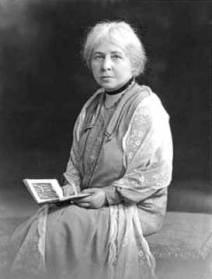 No. 2 Margaret Murray (1863-1963)
No. 2 Margaret Murray (1863-1963)
Why she’s on this list: If there’s a surprise inclusion on this list it’s Murray. Talking to friends the last 48 hours she was the one figure that everyone trying to figure out my “Top 5” seemed to forget about. Murray was a well respected Egyptologist and mostly a serious academic (books like God of the Witches were obviously meant for a general audience) but is a major figure in the Modern Pagan Revival because of her books on Witchcraft and the Horned God.
It’s easy in retrospect to dismiss Murray’s Witch-cult in Western Europe (1921). Murray’s hypothesis that the innocents killed in Europe’s “Witch Trials” represented a secret underground pagan religion has been dismissed by a majority of scholars today, but the theory continues to hold a lot of power in Modern Paganism. Regardless of how factual the Murray hypothesis is, it became one of the founding myths of Witchcraft, and as a result Modern Paganism. In addition to providing a mythology, Murray provided the terminology that would become a part of many Pagan traditions. We use words like coven and esbat because they were words that Murray used.
Murray redeemed and legitimized the word “witch.” After reading Murray you want to practice Witchcraft and you want to be a Pagan. Her history of the Horned God in God of the Witches is everything you want a Pagan archetype to be. She traces the worship of Old Horny back to the Cave of the Three Brothers in France and its portrait of “The Sorcerer” to Pan and Cernunnos and then later Robin Hood. Murray’s Witch Religion is a faith of joy and exuberance and I’m certain that it influenced countless people to want to be Witches. She also endorsed Gardner’s version of Witchcraft writing the introduction to Witchcraft Today back in 1954.
Why she’s not higher: There’s only one person who could be number one on this list, but it’s important not to overlook Murray. Without Murray it’s possible that early Pagans might have all called themselves Druids or Heathens and the empowering mantle of witch would have never been worn in Contemporary Paganism. Certainly the influence of Murray’s “Witch-cult Hypothesis” will continue to fade in the coming decades, but her other contributions to Modern Paganism will continue. Besides even if Murray’s theory isn’t exactly true in the literal sense I think many of us will continue to feel a kinship with the women (and men) who were needlessly murdered in the name of religion centuries ago.
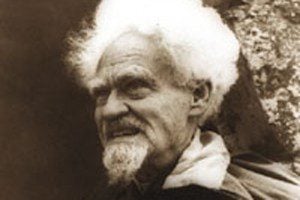 No. 1 Gerald Gardner (1884-1964)
No. 1 Gerald Gardner (1884-1964)
Why he’s here: I don’t think there was any real suspense about the number one spot on this list. Even Gardner’s detractors (and there are many) can’t deny his accomplishments. To put it simply Gardner was the first person to share with the world what would become a long-lasting religious and/or magickal tradition that most of us today would recognize as Pagan. His “Wica” had four quarters, a magick circle, a Goddess, a God, and a High Priestess. All of those elements existed before Gardner, but had never endured together for decades until Gardner.
It also doesn’t matter if Gardner was initiated into a coven back in 1939 or completely made his Witch Religion up. If he was initiated and his faith tradition traces back to that group then he’s the great revealer, sharing a new religion with the rest of the world. If he simply assembled the various pieces that make up Modern Witchcraft then he’s the great architect, the creator of a religious tradition that has now taken a seat next to the other great religions of the world. If you were to ask my opinion, I think Gardner exists somewhere between revealer and architect, someone who was probably initiated into something back in 1939 and then added to it.
I know my Top 5 is rather “Wicca-centered” but that’s only because Wicca has been the most dominant branch of the Pagan tree for the last 70 years. If it makes any of you feel better, Gardner himself was no doubt influenced by Druids like Ross Nichols and most likely encountered New Orleans Voodoo when he visited the United States back in 1947-48. Gardner’s interests were wide-ranging and he absorbed influences from various spiritualities. Gardner’s version of Witchcraft was the first public and long-lasting religion Pagan religion of the 20th Century, as such it’s going to have a high place on lists such as this one.
—
Thanks for reading and feel free to share your own “Top 5” list in the comments section.


